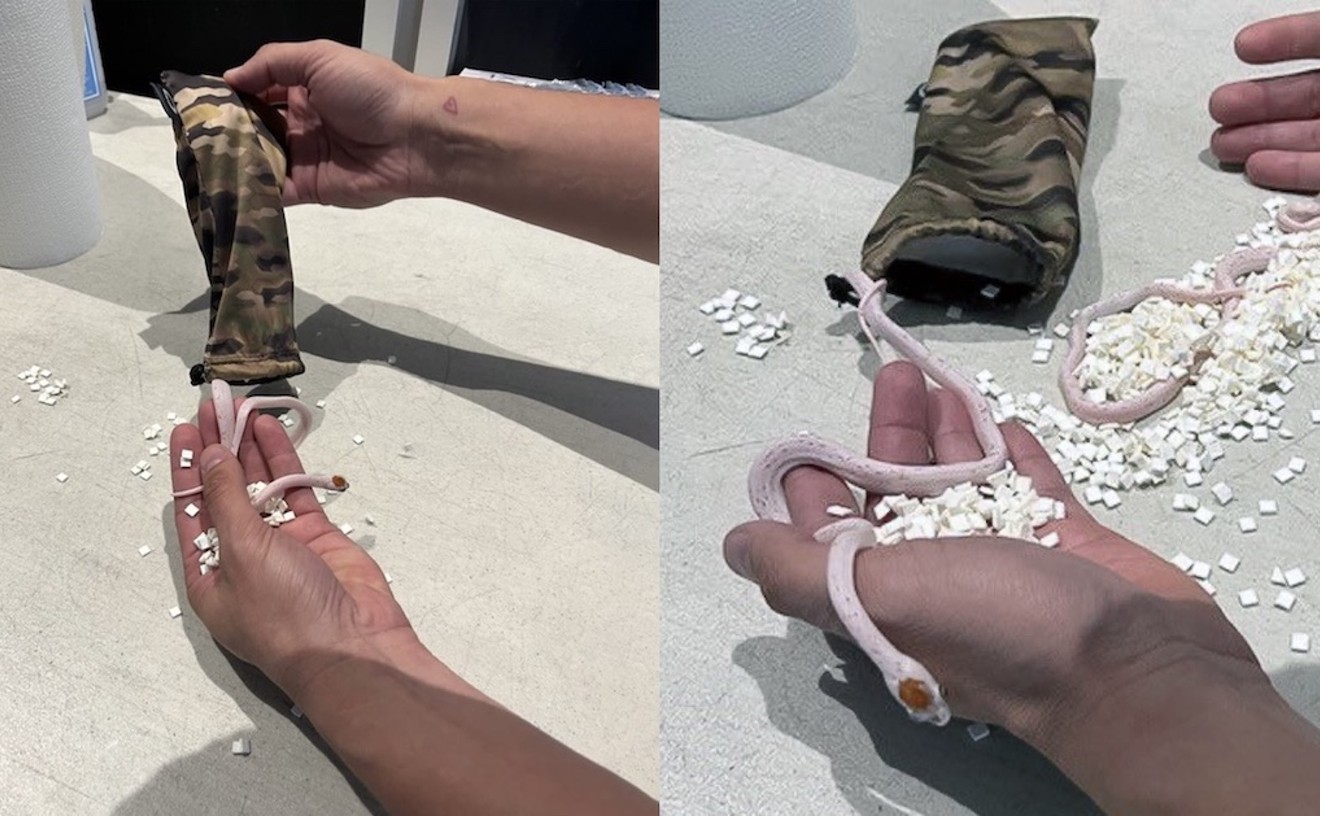Florida's law banning ex-felons from voting was written during the Jim Crow era to prevent black people from going to the polls. In February, federal Judge Mark Walker finally threw that racist law out after a group of ex-felons sued. The judge left the door open for Gov. Rick Scott's office to come up with a fix on its own.
But instead, Walker wrote in a new order yesterday, Scott's office is still claiming "the current scheme is all sunshine and rainbows." The judge has issued an even harsher ruling attacking what he calls an obviously flawed voting-rights system that Scott himself made harsher in 2011. Walker is giving Scott 30 days (until April 26) to come up with a new, fairer system.
Under Florida's current rules, the governor can refuse to restore voting rights on a whim for effectively any reason. Walker held earlier this year that such a system is "arbitrary," "capricious," and can clearly be gamed to favor voters from one political party or another. Now, Walker is forcing the state to rewrite that system. Importantly, the judge held that Florida technically can still ban felons from voting automatically — but there needs to be a system in place for people to regain their rights that is fair and works according to basic rules.
"This court concluded that Florida’s arbitrary slow drip of vote restorations violates the U.S. Constitution — but that does not mean defendants can shut off the spigot of voting rights with a wrench, yank it from the plumbing and throw the whole apparatus into the Gulf of Mexico,” Walker wrote.
The ruling is another victory for justice-reform advocates across the state, who have been fighting to fix the felon-disenfranchisement system for decades. Thanks to a petition campaign run by Desmond Meade, a former felon who went on to become a lawyer and activist, Floridians will vote in 2018 on whether to kill the state's automatic disenfranchisement of felons. Florida is one of only three states that automatically bans felons from voting for life, and due to that provision, one in four disenfranchised felons nationwide lives in Florida. Thanks to a transparently racist criminal justice system designed to punish people of color more harshly than whites, roughly one in four black Floridians cannot vote because of a prior felony conviction.
The provision's history is steeped in outright intolerance: W.J. Purnam, one of the post-Civil War state legislators who led efforts to add the felon-voting-ban to the constitution, said after his victory that the law would prevent Florida from becoming "niggerized."
Racism aside, the process of restoring rights to felons these days is utterly random. In his previous ruling, Walker noted cases where people convicted of the exact same crime were given differing clemency rulings, including at least one case in which Scott gave a white Republican his voting rights back while denying those rights to multiple black Democrats convicted of the same offense. People complained that ex-Gov. Jeb Bush only restored rights to one-fifth of the 385,522 people who applied to his office for clemency, but Scott — who has denied 92 percent of the applications he's received — makes Jeb! look downright compassionate.
Here's a handy explainer on the backward system:
Walker's latest decision is a blow for Scott, who has been riding high poll numbers since the Parkland massacre despite his abysmal gun-control record, vague resemblance to a Buddhist "gaki" demon, and general hatred for human empathy and happiness. Charlie Crist, Scott's GOP predecessor, enacted changes that allowed some felons to automatically get their rights back, but Scott reversed those reforms almost immediately after taking office. Scott has scheduled an April 9 press conference to announce his run for U.S. Senate in 2018, but this ruling is sure to be a stain on his record. So it's no shock that a Scott spokesperson has already hinted the governor may appeal the ruling further.
In his previous order, Walker offered a somewhat novel opinion that voting rights are also First Amendment rights, and that a state cannot therefore deny someone those rights without due cause. In his new order, Walker ruled that Scott's proposed "solutions" to the problem, which basically changed nothing or permanently banned all felons from voting in perpetuity, were also illegal.
"Defendants essentially repackage the current scheme into proposed remedies permitting the Governor and Board to do, as the Governor described, 'whatever we want in denying voting rights to hundreds of thousands of their constituents,'" Walker wrote. "This will not do. And Defendants’ proposed remedy to abandon the whole vote-restoration scheme does not pass constitutional muster."
Walker instead has directed Scott's office and Cabinet to create a system that gives former felons "meaningful" and "specific" benchmarks to clear to get their rights back. Walker also held that ex-felons should be given a reasonable estimate as to how long they need to wait before regaining their rights.
"Absent extraordinary circumstances, this court cannot conceive of any reason why an applicant at any point must wait more than one election cycle after she becomes eligible to apply for restoration," he wrote.
[
{
"name": "Air - MediumRectangle - Inline Content - Mobile Display Size",
"component": "19274298",
"insertPoint": "2",
"requiredCountToDisplay": "2"
},{
"name": "Editor Picks",
"component": "17482312",
"insertPoint": "4",
"requiredCountToDisplay": "1"
},{
"name": "Inline Links",
"component": "18711090",
"insertPoint": "8th",
"startingPoint": 8,
"requiredCountToDisplay": "7",
"maxInsertions": 25
},{
"name": "Air - MediumRectangle - Combo - Inline Content",
"component": "17482310",
"insertPoint": "8th",
"startingPoint": 8,
"requiredCountToDisplay": "7",
"maxInsertions": 25
},{
"name": "Inline Links",
"component": "18711090",
"insertPoint": "8th",
"startingPoint": 12,
"requiredCountToDisplay": "11",
"maxInsertions": 25
},{
"name": "Air - Leaderboard Tower - Combo - Inline Content",
"component": "17482313",
"insertPoint": "8th",
"startingPoint": 12,
"requiredCountToDisplay": "11",
"maxInsertions": 25
}
]












